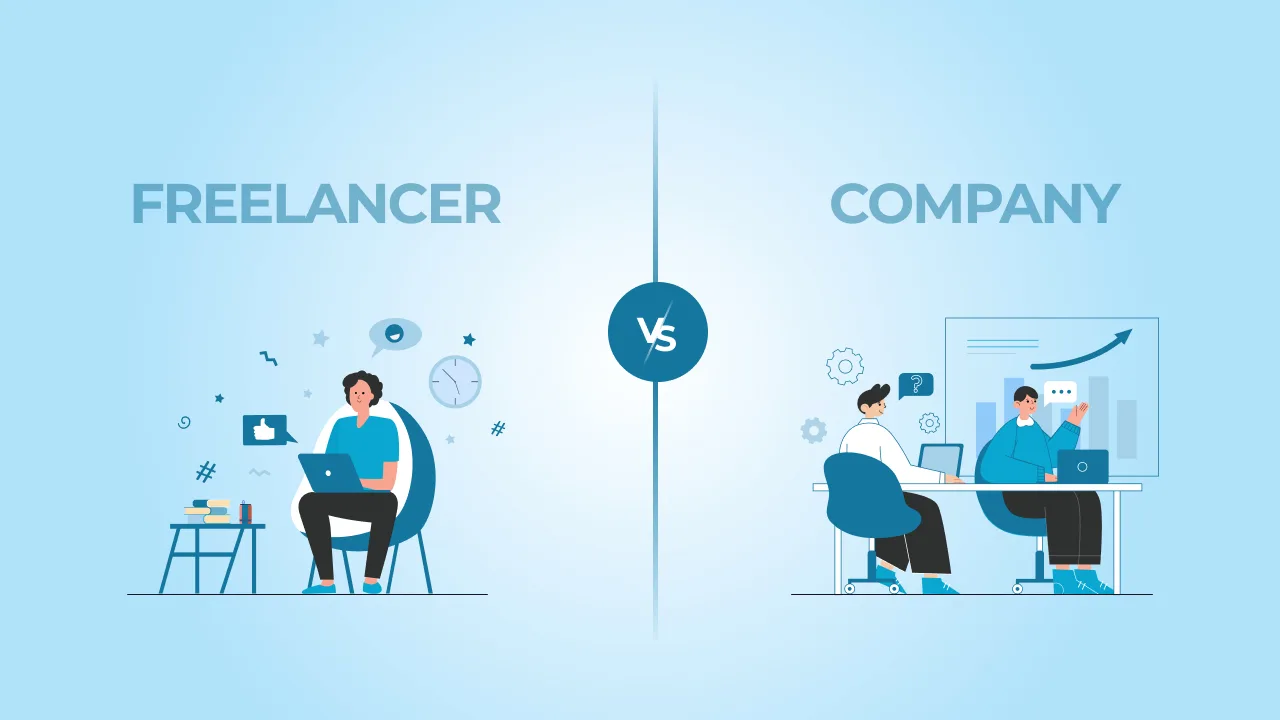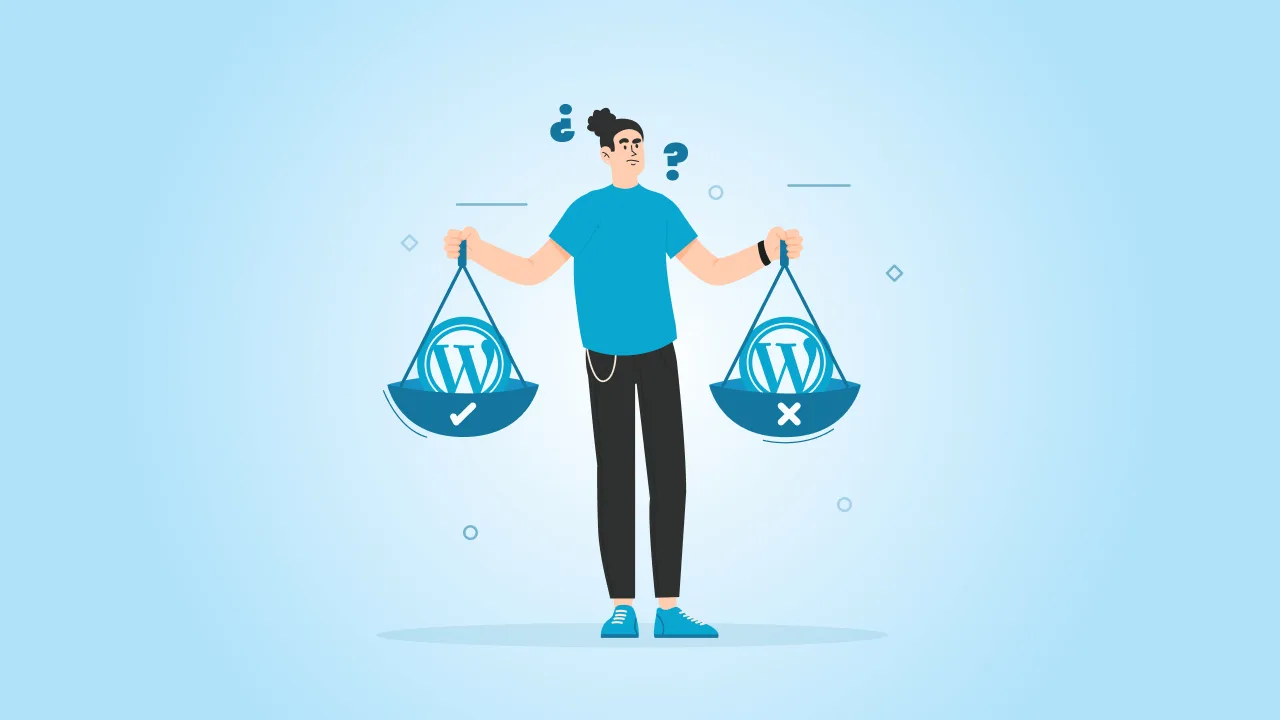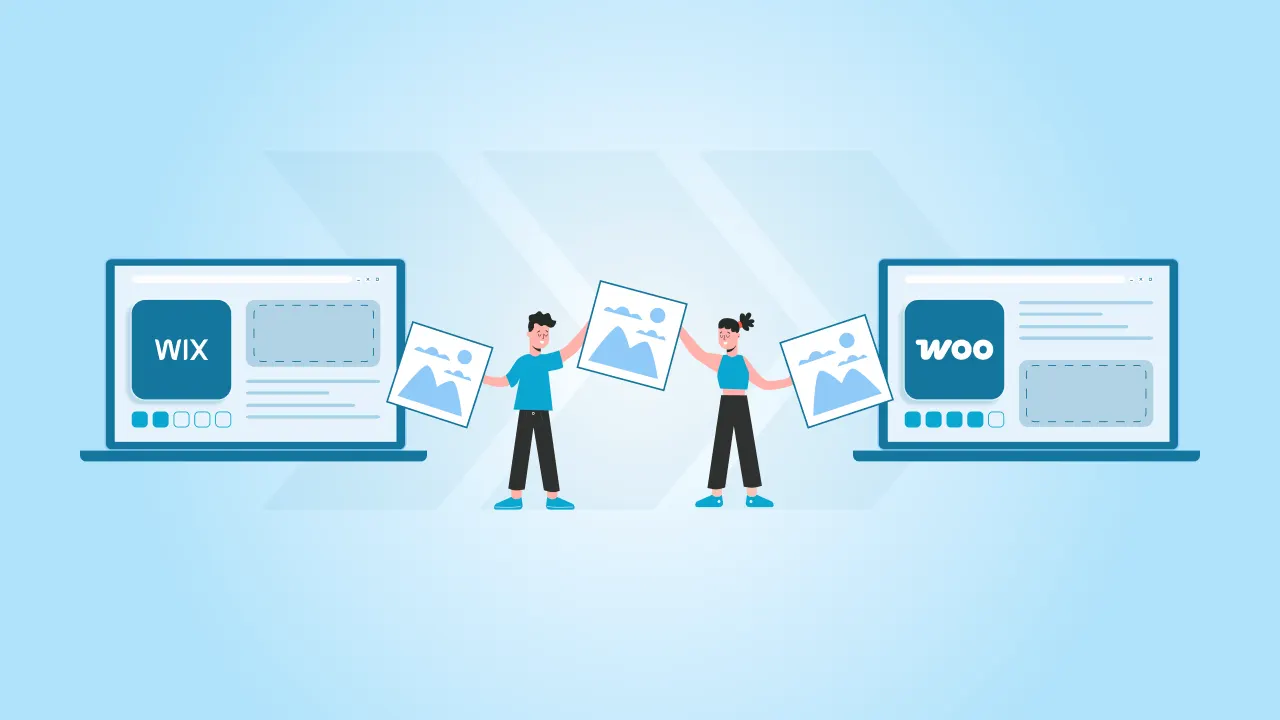WordPress, currently powering 43% of the internet, holds the leading market share in website development. Its popularity stems from its flexibility, user-friendliness, and vast customization options, making it an ideal platform for businesses of all sizes.
Whether you’re a startup looking for a simple, cost-effective solution or an enterprise needing advanced functionality, WordPress offers a versatile platform.
But how much does it actually cost to build a WordPress website? The answer depends on several factors, including hosting, design, development, and ongoing maintenance.
In this blog, we’ll break down the costs involved in building a WordPress website, helping you understand what to expect based on your needs and budget.
WordPress.org is Free of Cost
You read that right—WordPress.org is absolutely free!
As an open-source platform, WordPress.org allows anyone to download, install, and use it without paying a penny.
But the million-dollar question is what exactly does “free” mean when it comes to building a WordPress website?
While WordPress.org provides the framework to build a website, it is essentially just a tool. It gives you the core structure and architecture, but you’ll need additional elements to create a functional and complete website.
The real costs come into play when you start adding those additional components like hosting, themes, plugins, and professional services.
If you’re tech-savvy and willing to invest the time to learn how to build and manage your own website, you can significantly reduce your costs by handling most of the work yourself.
However, most of us are not tech-savvy and therefore require a custom WordPress development agency to handle the setup, design, development, and ongoing maintenance. While this comes with added costs, it ensures that your website is optimized, secure, and professionally crafted to suit your business needs.
Let’s break down those costs in the next sections.
Prerequisites for a WordPress Website
Before you start building your WordPress website, there are a few essential elements you’ll need to set up. These foundational components ensure your site is accessible, functional, and ready for development. Here’s what you’ll need:
Domain Name
Your domain name is your website’s unique address on the internet (e.g., www.yourwebsite.com). It’s crucial to choose a domain that reflects your brand and is easy for users to remember. Domain names typically cost between $10 and $20 annually, and you can purchase them from registrars like GoDaddy, Namecheap, or Google Domains.
Web Hosting
Web hosting is the service that stores your website’s files and makes it accessible to visitors. Choosing the right hosting is important for your site’s performance, speed, and security. Hosting options for WordPress vary in price and features:
- Shared Hosting: Budget-friendly option, ideal for small websites with low traffic. Prices start around $3–$10 per month.
- VPS Hosting: Provides more control and dedicated resources for websites with moderate traffic. Costs range from $20–$80 per month.
- Managed WordPress Hosting: Tailored specifically for WordPress sites, offering better performance, automatic updates, and enhanced security. This is a great choice for business websites and typically costs between $25 and $100 per month.
With your domain and hosting in place, you’ll have the basic infrastructure needed to build your WordPress website. The next steps involve designing and developing the site based on your goals and preferences.
Key Costs of Building a WordPress Website
Once you have your domain and hosting in place, the main costs of building a WordPress website come from three essential areas: design, development, and ongoing maintenance. Let’s explore these in detail:
Design
The design of your website is crucial for establishing a professional, user-friendly online presence. There are several options for WordPress website design:
- Free Themes: WordPress offers free themes that work for basic websites, but they may lack customization and uniqueness.
- Premium Themes: These provide more flexibility, customization, and support, making them ideal for businesses looking to stand out. Premium themes typically range from $30 to $100.
- Custom Design: For a website tailored specifically to your brand, custom design is the way to go. This can involve a unique layout and design elements, with costs ranging from $1,000 to $10,000+, depending on complexity. Explore our Web Design Pricing Plans to find the perfect fit for your business.
Development
Development ensures that your website functions seamlessly and includes all the necessary features. Whether you need custom functionalities, e-commerce integration, or API connections, professional development is often required:
- DIY Development: If you have technical expertise, you might save on costs by handling basic development tasks yourself.
- WordPress Development Services: For businesses looking for more advanced or custom features, hiring a WordPress developer is essential. Development costs can range from $25 to $150 per hour, depending on the complexity of the project. For larger, more complex sites, full development costs can range from $1,000 to $20,000 or more.
Ongoing Maintenance
A website is never “set it and forget it.” To keep it running smoothly, secure, and updated, WordPress website maintenance is crucial:
- Updates: WordPress, themes, and plugins require regular updates to ensure security and performance.
- Security Monitoring: Protecting your website from threats is essential. Additional security measures, like firewalls or malware protection, can incur extra costs.
- Performance Optimization: Regular performance checks help maintain speed and usability, ensuring a smooth user experience. Maintenance packages typically range from $50 to $500 per month, depending on the level of support your website requires.
Total Cost Estimate
Based on the factors mentioned above, the total cost of building a WordPress website can range anywhere from $1000 for a basic site using free themes and DIY development to $10,000+ for a fully custom, professionally developed website with ongoing maintenance and support.
Other Costs Associated with a WordPress Website
In addition to design, development, and ongoing maintenance, other costs can arise when building and maintaining a WordPress website. These are important to enhance your site’s functionality, security, and overall performance. Let’s explore the key additional costs:
Essential Plugins
Plugins are tools that extend the functionality of your WordPress website. While many are free, premium plugins can add advanced features that enhance user experience, security, and performance. Here are some essential plugins you might need:
- SEO Plugins: Tools like Yoast SEO or Rank Math help optimize your site for search engines. Premium versions can cost $50–$100 per year.
- Security Plugins: Plugins like Sucuri or Wordfence offer enhanced security features to protect your site from cyber threats. Premium versions range from $50 to $200 per year.
- Backup Plugins: WordPress backup Plugins like UpdraftPlus or BackupBuddy ensure your data is regularly backed up and can be restored in case of emergencies. Premium options can cost around $50 to $100 annually.
- E-commerce Plugins: If you’re running an online store, plugins like WooCommerce can be essential. While the base plugin is free, extensions for payment gateways, shipping, or subscription services can add up, ranging from $30 to $300+ depending on your needs.
Themes
While WordPress offers many free themes, premium themes provide more customization, support, and advanced design options. Premium themes usually cost between $30 and $100 for a one-time purchase, with some offering annual support packages for an additional fee. If you want something more tailored to your brand, a custom theme design can range from $1,000 to $10,000 or more.
E-commerce Functionality
For businesses looking to sell products or services online, e-commerce functionality is crucial. The WooCommerce plugin is popular for WordPress, but additional costs can arise from:
- Payment Gateway Fees: Payment gateways like Stripe or PayPal may charge transaction fees ranging from 2% to 3% per transaction.
- E-commerce Extensions: Adding features like subscriptions, product add-ons, or advanced shipping options can cost $30 to $300+ annually.
Content Creation
If you’re not creating content for your site yourself, you may need to budget for professional copywriting or media services.
The cost of content creation varies widely depending on the scope of work, but hiring a professional copywriter typically ranges from $50 to $200 per page, while creating videos or professional photoshoots can add to your overall costs.
Marketing and SEO Tools
To drive traffic and improve visibility, you may want to invest in marketing tools like:
- Email Marketing: Services like Mailchimp or Constant Contact charge $10–$50 per month based on your email list size.
- Advanced SEO Tools: In addition to plugins, SEO services like Ahrefs or SEMrush can help you analyze and improve your site’s rankings, with pricing starting around $99 per month.
Estimated WordPress Website Costs Based on Website Type
When building a WordPress website, the cost varies based on the type of website you need, its functionality, and its complexity. Below is a breakdown of estimated costs for different types of websites:
Personal Blog/Basic Website
A simple personal blog or a basic informational website is designed to share content and typically requires minimal development work. This is ideal for individuals or small projects that don’t need advanced functionality.
- Design: Free theme or premium theme ($30–$100)
- Development: DIY or minimal custom development ($0–$500)
- Plugins: Basic free plugins (for SEO, security)
- Maintenance: Minimal maintenance, security updates ($50–$100/month)
Estimated Cost: $100–$1,000
Small Business Website (5–20 Pages)
A small business website usually requires more features, such as contact forms, basic SEO, and a professional design. These websites are designed to showcase services, products, and company information, and typically involve a more polished presentation.
- Design: Premium theme or custom design ($500–$2,500)
- Development: Custom development for features like contact forms, testimonials, and service pages ($1,000–$7,000)
- Plugins: Premium plugins for SEO, performance optimization, and security ($100–$300/year)
- Maintenance: Regular updates, backups, and performance checks ($100–$300/month)
Estimated Cost: $1,000–$10,000
E-Commerce Website
An e-commerce website allows you to sell products or services online. It requires advanced functionality, including product pages, shopping carts, payment processing, and shipping integrations. WooCommerce is commonly used for WordPress e-commerce websites.
- Design: Premium e-commerce theme or custom design ($1,000–$5,000)
- Development: Custom product pages, checkout process, and third-party integrations ($3,000–$15,000)
- Plugins: WooCommerce and related extensions for shipping, subscriptions, payment gateways ($500–$2,000/year)
- Ongoing Costs: Transaction fees (2–3%), maintenance, and performance monitoring ($200–$500/month)
Estimated Cost: $5,000–$30,000
Membership Website
A membership website requires functionality for gated content, user account management, and subscription handling. Whether you’re offering courses, exclusive content, or paid communities, membership websites need advanced development.
- Design: Premium theme or custom design ($1,000–$5,000)
- Development: Custom membership areas, payment integration, content gating ($3,000–$15,000)
- Plugins: Membership plugins like MemberPress or Restrict Content Pro ($100–$300/year)
- Ongoing Costs: Payment gateway fees, ongoing maintenance, security updates ($200–$500/month)
Estimated Total Cost: $5,000–$25,000
Corporate Website (20–200 Pages)
A corporate website typically requires advanced features, a custom design, and robust functionality for marketing, client management, and services. These websites often include integrations with CRM systems, analytics tools, and multi-language support.
- Design: Custom corporate design ($2,000–$10,000)
- Development: Advanced functionality, custom integrations, multi-language support, API connections ($5,000–$25,000+)
- Plugins: Premium security, SEO, and performance plugins ($500–$2,000/year)
- Ongoing Costs: Regular maintenance, security audits, performance optimization ($300–$1,000/month)
Estimated Total Cost: $10,000–$50,000+
Enterprise Website (WordPress VIP Platform)
For large organizations, an enterprise-level website running on the WordPress VIP platform offers a fully managed solution with premium hosting, performance, and security features. These websites typically involve complex, large-scale development and require high performance for handling significant traffic and content.
- Design: Fully custom enterprise website design ($5,000–$50,000+)
- Development: Complex development for scalability, custom workflows, and enterprise integrations ($10,000–$100,000+)
- Hosting: WordPress VIP managed hosting, offering top-tier security, performance, and support (starting at $2,000/month)
- Ongoing Costs: Enterprise-level maintenance, ongoing development, security monitoring, compliance ($1,000–$5,000/month)
Estimated Total Cost: $50,000–$500,000+
Summary Table of Estimated Costs:
| Type of Website | Estimated Cost Range |
|---|---|
| Personal Blog/Basic Website | $100–$1,000 |
| Small Business Website (5–20 pages) | $1,000–$10,000 |
| E-Commerce Website | $5,000–$30,000 |
| Membership Website | $5,000–$25,000 |
| Corporate Website (20–200 pages) | $10,000–$50,000+ |
| Enterprise Website (WordPress VIP) | $50,000–$500,000+ |
Is WordPress Worth the Cost?
When determining whether WordPress is worth the cost, it’s essential to consider the return on investment (ROI) and the value it brings to businesses. WordPress offers a flexible and scalable platform for businesses of all sizes, from small startups to large enterprises. Below, we break down key ROI considerations and the value WordPress provides across various business contexts.
1. Cost Efficiency and Flexibility
- Low Initial Investment: WordPress is an open-source platform, meaning the core software is free. Businesses can start with minimal costs (domain, basic hosting, free themes) and grow over time. This makes it a cost-effective solution for startups or small businesses with limited budgets.
- Scalability: As a business grows, WordPress can scale to meet evolving needs. With thousands of plugins and themes available, businesses can gradually add advanced features, making the platform a long-term solution that evolves with minimal rework costs.
- Customization: WordPress offers unparalleled customization options. Whether using pre-built themes or investing in custom development, businesses can tailor their website to meet specific branding and functional needs. This flexibility avoids the cost of migrating to another platform as the business grows or changes.
- Verdict: Worth the cost, especially for small businesses and growing enterprises due to its flexibility and scalability, which helps businesses avoid re-platforming expenses down the line.
2. SEO and Marketing Benefits
- Built-In SEO Features: WordPress is built with SEO best practices in mind, and there are numerous free and premium SEO plugins (e.g., Yoast SEO, Rank Math) that help businesses optimize their content for search engines. Improved search engine rankings can lead to increased traffic, visibility, and revenue.
- Content Management: WordPress is a content management powerhouse, allowing businesses to easily publish and update content. This helps drive organic traffic, which can result in higher lead generation without the need for continuous advertising spending.
- Cost of Not Using WordPress: Platforms without strong SEO foundations or limited flexibility in content creation may force businesses to spend more on paid advertising to compensate for a lack of organic traffic, making WordPress a cost-effective solution in the long term.
- Verdict: High ROI when used effectively for SEO and content marketing, making WordPress a powerful tool for businesses looking to grow organically.
3. E-Commerce Capabilities and Revenue Generation
- WooCommerce: For businesses operating online stores, WooCommerce (a WordPress plugin) offers a fully-featured, customizable e-commerce solution. WooCommerce is free, with optional paid extensions, which allows businesses to build a scalable e-commerce platform without the high licensing fees of other solutions like Shopify or Magento.
- Cost Savings: While some customization and advanced functionality may require investment, businesses save by not having to pay ongoing fees or commissions to third-party platforms.
- ROI for E-Commerce: With the right setup, an e-commerce website can quickly recoup its initial costs through increased online sales, making WordPress highly valuable for businesses aiming to scale their online presence.
- Verdict: High ROI for e-commerce, especially when factoring in low platform fees, flexible scaling, and the ability to implement advanced marketing strategies (e.g., abandoned cart recovery, dynamic pricing) using cost-effective plugins.
4. Maintenance and Long-Term Savings
- Ongoing Maintenance Costs: WordPress websites require regular maintenance, including updates, security patches, and backups. These can either be managed internally (low cost) or outsourced (moderate cost), but overall, the cost is manageable, especially when compared to proprietary platforms that often require expensive maintenance contracts.
- Avoiding Expensive Migrations: Because WordPress is so versatile, businesses rarely outgrow the platform. This means that costly migrations to other systems can often be avoided, providing long-term savings.
- Security: While WordPress is a popular target for hackers, there are numerous affordable security plugins (free and premium) to help keep sites secure. Proper maintenance and security can prevent costly breaches, making the investment in security measures well worth it.
- Verdict: Solid ROI in terms of long-term savings and reduced WordPress maintenance costs compared to more rigid, proprietary platforms that may require more frequent, expensive upgrades.
5. Developer Ecosystem and Support
- Large Developer Community: One of the key advantages of WordPress is its vast global developer community. This means businesses have access to thousands of developers at various price points who can provide support, customization, and new feature development.
- No Vendor Lock-In: Since WordPress is open-source, businesses are not tied to any one developer or agency, allowing flexibility in sourcing talent. This reduces the risk of expensive lock-ins or high fees typically associated with proprietary platforms.
- Low-Cost Customization: Businesses can leverage this developer community to implement custom features without having to build them from scratch. The availability of pre-built plugins and themes also reduces development costs significantly.
- Verdict: High ROI due to the availability of affordable development talent and the absence of vendor lock-in, leading to more competitive pricing and better flexibility in managing the website.
6. Branding and Customer Experience
- Custom Design Options: A well-designed, customized website can significantly enhance a brand’s image and build trust with customers. WordPress allows for extensive design flexibility, which can be a powerful tool for businesses looking to differentiate themselves from competitors.
- Better User Experience: With countless themes, plugins, and customization options, WordPress allows businesses to craft a smooth, responsive, and mobile-friendly user experience. This directly impacts customer satisfaction and conversion rates, contributing to higher revenue.
- Verdict: High value in terms of branding and customer experience, leading to increased customer engagement and retention, which translates to higher lifetime customer value.
Final Verdict: Is WordPress Worth the Cost?
Yes, WordPress is worth the cost for businesses of all sizes. Its flexibility, scalability, and cost-effectiveness provide a high ROI, especially when used strategically for content marketing, e-commerce, and branding. Small businesses can launch with minimal investment, while enterprises benefit from its ability to grow and adapt to complex needs without expensive re-platforming. WordPress’s robust ecosystem of themes, plugins, and developers ensures that businesses can get the most out of their investment, making it a smart choice for a wide variety of business models.
Conclusion
Building a WordPress website offers immense flexibility and scalability, making it suitable for a wide range of businesses, from personal blogs to enterprise-level platforms. While WordPress.org is free, the actual cost of your website will depend on several factors, including hosting, design, development, and ongoing maintenance.
Whether you’re looking for a basic website or a fully custom solution, understanding the different costs associated with your specific needs will help you budget effectively and make informed decisions.
From domain and hosting to essential plugins and security measures, each component plays a critical role in delivering a professional and fully functional WordPress site. Hopefully, you found our blog value-adding, if you need any help with your WordPress website, feel free to contact us.





